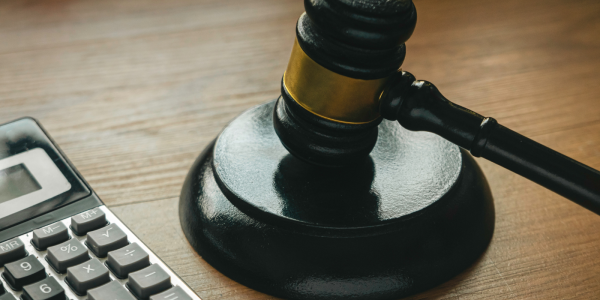Daily penalties for late 2020/21 tax returns
From 1 May 2022, HMRC will charge you daily penalties of £10 if you have not yet submitted your 2020/21 Self Assessment tax return (assuming the return was not issued late). Unless HMRC agree to cancel the need for a tax return, you should send it in as soon as possible – online, rather than on paper.

If HMRC have asked you to file a tax return for 2020/21 and you have not yet done so, they will already have charged you a penalty of £100 (assuming the notice to file was not issued late).
What happens from 1 May 2022?
If a Self Assessment tax return is more than three months late, HMRC start to charge a £10 penalty for each day that the return remains outstanding. For 2020/21 tax returns, normally due (if submitted online) by 31 January 2022, this means that daily penalties start to be charged from 1 May 2022.
HMRC said they would not charge late filing penalties for 2020/21 tax returns filed online by 28 February 2022. However, the normal filing deadline remained 31 January 2022. This means that the daily penalties start from 1 May 2022, not 1 June 2022.
The £10 daily penalties continue to be chargeable for up to 90 days unless you submit your return online within that time. As soon as HMRC receive the online return, the daily penalties stop building up. However, HMRC will still charge you any penalties that you have incurred up to the date of submission unless you can successfully appeal against them (see below).
Note that HMRC charge these daily penalties even if you owe nothing or are owed tax back.
What should I do if I have not yet filed my 2020/21 return?
If you think HMRC should not have asked you to fill in a 2020/21 tax return, they might agree to cancel it. HMRC can only cancel a return within two years of the end of the tax year to which the return relates – which means 5 April 2023 for 2020/21 tax returns. So contact HMRC as soon as possible, as explained in our guidance.
If they agree to cancel the return, you will no longer need to submit it and any penalties for missing the filing deadline will be cancelled.
Otherwise, you should submit your outstanding 2020/21 tax return as soon as possible.
You should submit an online return. This is because paper returns for 2020/21 were due to be submitted by 31 October 2021, so daily penalties for a paper return submitted after 31 January 2022 would already have been building up. This means HMRC will charge the maximum of £900 if you submit a paper return now.
What if I am having trouble gathering together the information I need for my return?
Sometimes, it might be difficult to get together the information you need for a tax return.
If you are missing something you need, you can send HMRC a provisional return – that is, one with estimated figures on it. You can then provide HMRC with the actual figures as soon as you can.
Tell HMRC in the additional information box of the return what figures are estimated and/or which boxes have been provisionally completed. You can also tell them why you cannot provide accurate figures at this time and when you will be able to provide them.
Giving full information on the tax return about any such provisional entries will help you to show you have taken reasonable care if HMRC try to charge you a penalty for an incorrect return.
Can I appeal against late filing penalties?
As above, if you think you should not have been in Self Assessment for 2020/21, before you fill in a return, try asking HMRC to cancel the notice to file a tax return. If HMRC agree to this, any penalties will be cancelled as well.
If HMRC cannot or will not cancel the return, you can appeal late filing penalties if there is a reasonable excuse for filing late. Examples of reasonable excuses might be prolonged ill-heath, bereavement or a relationship breakdown. HMRC can also reduce penalties (giving you a special reduction) if special circumstances apply.
Where can I find out more?
We provide more information on tax penalties in our main guidance, together with further information on appeals.
If you need help completing a tax return, our Getting Help pages give information on how to contact a paid professional tax adviser. If you are on a low income, those pages also tell you how to contact the tax charities, TaxAid and Tax Help for Older People.
